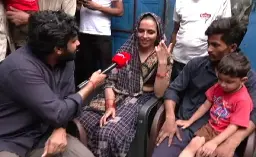cross-posted from: https://lemmy.ml/post/1840209
> cross-posted from: https://lemmy.ml/post/1840134
>
> > > > This is a changeset adding encryption to btrfs. It is not complete; it > > does not support inline data or verity or authenticated encryption. It > > is primarily intended as a proof that the fscrypt extent encryption > > changeset it builds on work. > > > > As per the design doc refined in the fall of last year [1], btrfs > > encryption has several steps: first, adding extent encryption to fscrypt > > and then btrfs; second, adding authenticated encryption support to the > > block layer, fscrypt, and then btrfs; and later adding potentially the > > ability to change the key used by a directory (either for all data or > > just newly written data) and/or allowing use of inline extents and > > verity items in combination with encryption and/or enabling send/receive > > of encrypted volumes. As such, this change is only the first step and is > > unsafe. > > > > This change does not pass a couple of encryption xfstests, because of > > different properties of extent encryption. It hasn't been tested with > > direct IO or RAID. Because currently extent encryption always uses inline > > encryption (i.e. IO-block-only) for data encryption, it does not support > > encryption of inline extents; similarly, since btrfs stores verity items > > in the tree instead of in inline encryptable blocks on disk as other > > filesystems do, btrfs cannot currently encrypt verity items. Finally, > > this is insecure; the checksums are calculated on the unencrypted data > > and stored unencrypted, which is a potential information leak. (This > > will be addressed by authenticated encryption). > > > > This changeset is built on two prior changesets to fscrypt: [2] and [3] > > and should have no effect on unencrypted usage. > > > > [1] https://docs.google.com/document/d/1janjxewlewtVPqctkWOjSa7OhCgB8Gdx7iDaCDQQNZA/edit?usp=sharing > > [2] > > https://lore.kernel.org/linux-fscrypt/cover.1687988119.git.sweettea-kernel@dorminy.me/ > > [3] > > https://lore.kernel.org/linux-fscrypt/cover.1687988246.git.sweettea-kernel@dorminy.me > >
New Linux Kernel Vulnerability Uncovered. StackRot (CVE-2023-3269) opens doors to unauthorized elevated privileges.

cross-posted from: https://latte.isnot.coffee/post/256982
> A discovered vulnerability for privilage escalation https://thehackernews.com/2023/07/researchers-uncover-new-linux-kernel.html?m=1 > > If system security is the most important criteria above everything else, switch to using BSD.
India's Sachin Meena and Pakistan's Seema Haider are looking to start a new chapter as they walk out of prison on a rain-soaked Saturday after getting bail.

cross-posted from: https://lemmy.run/post/32118
> India's Sachin Meena and Pakistan's Seema Haider are looking to start a new chapter as they walk out of prison in New Delhi on a rain-soaked day after getting bail. > > Seema was arrested on July 4 for illegally entering India without a visa via Nepal with her four children, all aged below seven years, while Sachin was put behind bars for sheltering the illegal immigrants. > > "My husband is a Hindu, so I am a Hindu. I feel I am an Indian now," Seema told NDTV. > > The couple's love story is as intriguing as a Bollywood movie. They got in touch during the Covid pandemic while playing the online game PlayerUnknown's Battlegrounds (PUBG). > > They fell in love on the app, which led to Seema, 30, and Sachin, 25, getting married in Nepal in March this year. This was their first meeting. > > "It was such a long and gruelling journey. I was very scared too. I first went from Karachi to Dubai, where we waited for 11 hours and couldn't sleep. We then flew to Nepal, before finally taking the road to Pokhara, where I met Sachin," Seema says. > > She then went back to Pakistan and Sachin returned to India. Back home, Seema, who claimed discord with her husband, sold a plot for Pakistani rupees 12 lakh and arranged flight tickets and a Nepal visa for herself and her four children. > > In May she reached Nepal via Dubai and spent some time in the tourist city of Pokhara in the Himalayan nation. Then she took a bus for Delhi from Kathmandu and reached Greater Noida on May 13 with her children where Sachin had made arrangements for her to stay in a rented accommodation without disclosing her Pakistani identity, officials said. > > The cross-border love story hit a dead-end as they were arrested on July 4 and put in jail. While Seema was charged with illegally entering India, Sachin was booked for sheltering the illegal immigrant. > > Yesterday, Seema was granted bail and will now focus on the paperwork to make her move to India official. > > Talking about her release, Seema says, "I shouted in joy when I heard the news. I had thought that I would be in jail for months." > > In a video message from Saudi Arabia, Seema's husband Ghulam Haider urged the Indian government to help him reunite with his wife. However, Seema told reporters that she did not wish to go back to Ghulam Haider and claimed a threat to her life if she returns to Pakistan.
India's Sachin Meena and Pakistan's Seema Haider are looking to start a new chapter as they walk out of prison on a rain-soaked Saturday after getting bail.

India's Sachin Meena and Pakistan's Seema Haider are looking to start a new chapter as they walk out of prison in New Delhi on a rain-soaked day after getting bail.
Seema was arrested on July 4 for illegally entering India without a visa via Nepal with her four children, all aged below seven years, while Sachin was put behind bars for sheltering the illegal immigrants.
"My husband is a Hindu, so I am a Hindu. I feel I am an Indian now," Seema told NDTV.
The couple's love story is as intriguing as a Bollywood movie. They got in touch during the Covid pandemic while playing the online game PlayerUnknown's Battlegrounds (PUBG).
They fell in love on the app, which led to Seema, 30, and Sachin, 25, getting married in Nepal in March this year. This was their first meeting.
"It was such a long and gruelling journey. I was very scared too. I first went from Karachi to Dubai, where we waited for 11 hours and couldn't sleep. We then flew to Nepal, before finally taking the road to Pokhara, where I met Sachin," Seema says.
She then went back to Pakistan and Sachin returned to India. Back home, Seema, who claimed discord with her husband, sold a plot for Pakistani rupees 12 lakh and arranged flight tickets and a Nepal visa for herself and her four children.
In May she reached Nepal via Dubai and spent some time in the tourist city of Pokhara in the Himalayan nation. Then she took a bus for Delhi from Kathmandu and reached Greater Noida on May 13 with her children where Sachin had made arrangements for her to stay in a rented accommodation without disclosing her Pakistani identity, officials said.
The cross-border love story hit a dead-end as they were arrested on July 4 and put in jail. While Seema was charged with illegally entering India, Sachin was booked for sheltering the illegal immigrant.
Yesterday, Seema was granted bail and will now focus on the paperwork to make her move to India official.
Talking about her release, Seema says, "I shouted in joy when I heard the news. I had thought that I would be in jail for months."
In a video message from Saudi Arabia, Seema's husband Ghulam Haider urged the Indian government to help him reunite with his wife. However, Seema told reporters that she did not wish to go back to Ghulam Haider and claimed a threat to her life if she returns to Pakistan.
In India, the average annual salary is ₹18,91,085. Men earn an average of ₹19,53,055 while women earn ₹15,16,296, reflecting the gender pay gap. Management and Business is the highest-paying profession with an average income of ₹29,50,185.

In India, the average annual salary stands at ₹18,91,085, with the most common earnings being ₹5,76,851, according to the Average Salary Survey figures as of July 2023. There is a notable difference in salaries between men and women, as men receive an average salary of ₹19,53,055, while women earn an average salary of ₹15,16,296. These figures reflect the existing gender pay gap in the country.
Average Salary Survey collects and analyses salary data from thousands of individuals from 138 countries around the world. For India, the information provided is derived from an analysis of 11,570 salary surveys.
Among various career fields, Management and Business emerges as the highest-paying profession, with an average income of ₹29,50,185. Following closely behind is the field of Law, where professionals earn an average income of ₹27,02,962.
Additionally, the level of experience plays a significant role in determining earning potential. Individuals with 20+ years of experience command an impressive salary of ₹38,15,462.
Employees with 16-20 years of experience earn a respectable salary of ₹36,50,647, showcasing the financial rewards that come with years of dedication and skill development in their respective fields.
Also, the more educated you are, the more likely you are to get a higher salary. People with doctoral degrees earn the highest salaries ( ₹27,52,407 on an average) while people below High School degrees earn ₹11,12,499 on an average.
In terms of average annual salaries in cities, Solapur emerges as the city with the highest figures, standing at ₹28,10,092, as per the Average Salary Survey. However, it is to be noted that only two people were surveyed in the city.
Mumbai, where 1,748 people were surveyed, follows closely behind with an average annual salary of ₹21,17,870, reflecting the financial opportunities available in the country's bustling financial capital.